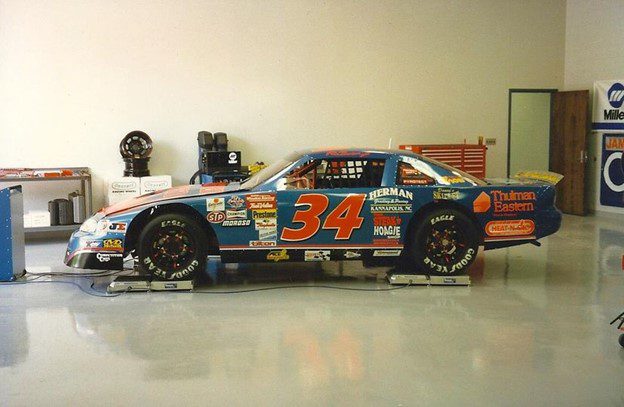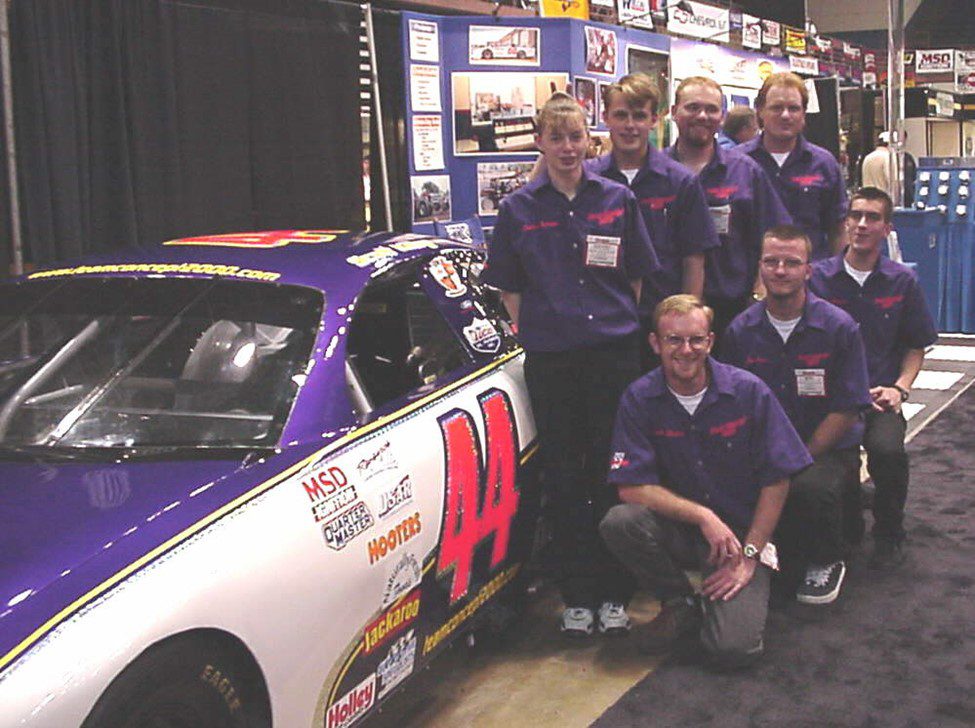In the summer of 1996, Motorsports Workforce Development became a real thing. Catawba Valley Community College Foundation had been approached by the NC Workforce Development crowd to mature the motorsports industry and develop a skills specific workforce. The vision would include a motorsports technology program facilitated by the automotive department at CVCC, curriculum approved by UNC. This is the path that many great program ideas follow to die. I was asked by Ned Jarrett to call Teresa Biggs Executive Director, this led to an invitation to a series of meetings that escalated the development of the Bobby Isaacs Motorsports Program. CVCC first chased a conventional path, two-year approval process, professor prepared budget of $2 million per year, total student graduates year one “0” year two “10”, industry needed 1500. In a last-ditch effort, I suggested a self-supporting certificate program that fell in a short-term continuing education category for NC Community Colleges. After listening to the crew chiefs, team owners, we needed to implement a program that could fill the gaps teams and motorsports related businesses had. In certificate style continuing education programs training specialists can tailor training programs focusing on skills. Universities and Colleges are in the long-term education business, this includes retaining a captive audience with a promise that a piece of paper that will change their life. Workforce development programs focus on employees with focused skills that the industry needs today. The 9-week format allowed a student to complete the full program in 48 weeks 960 contact hours with a certificate in each of the twelve areas of instruction. Every area of instruction was associated with specific skillsets that could guarantee employment without taking all the twelve classes. The continuing education concept accepts that many of the students had motorsports experience and confidence but needed certain skills, and team employment direction. From a conventional administrative viewpoint, the program should process 20 students max per class, 2 classes per year, 2 instructors per class (10 students per instructor), morning class 8 a.m. to noon, afternoon class 1 to 5 p.m., graduate 40 students per year in a 5000 square foot lab with $75000 worth of equipment. Going short term/ self-supporting changed the game, the foundation board called it a gamble, first program in NC, that was designed to fill specific positions in an industry that facilitated a professional sport. I knew it was an investment in an industry that needed a focused talent pool and matching personalities. The CVCC Foundation folks accepted the concept, they were all business folks, the education crowd couldn’t accept that they didn’t control the motorsports industry narrative, the “it takes our programs to define your workforce concept! In this concept education controls the employee you hire, and education tells you when they have transferred enough useless information based on the education income business model not based on any industry’s needs!” The State of NC still considered motorsports a hobby and we didn’t care. To launch we had to secure a line of credit, $125,000 renovate a 5000 sq ft lab to NC state lab standards, secure $75000 worth of teaching aids/equipment, and find a program director, lead instructor, and instructor. It took 15 minutes to secure the line of credit, it was contingent on me being the Director of the Program/ lead instructor. I accepted the position, filled the instructor position, and secured $75000 worth of donated equipment by January 1st of 1997. Renovated the lab, built teaching aids, and had first 3-day Aero class on April 16th,1997.

The first class of Motorsports Technology started June 1st. The administrative crowd at CVCC challenged the freedom of the industry needs and CVCC foundations relationship that met industry needs on the fly, ignoring the UNC 2-year program format. Within 5 years, the common practice in education known as “education knows best,” challenged the strongest workforce development program in NC. I saw the writing on the wall in a meeting, when the Director of Continuing Education, challenged the Motorsports Program, Ron Valentini’s statement “that in five full years, 1997 to 2002, 98% of the students that have taken one or more of the programs were employed in the industry, 92% of all the students were from outside of NC, the strength of employment is strong, but the vision of the program was to employ locals not fill the NC motorsports workforce with talent from outside NC, with the 6% NC resident recruitment numbers discounting the programs value in the NC Community College systems eyes. At the end of the day from 1991 to 2010, our team trained 1500 students employed within the performance vehicle industry nationwide.

